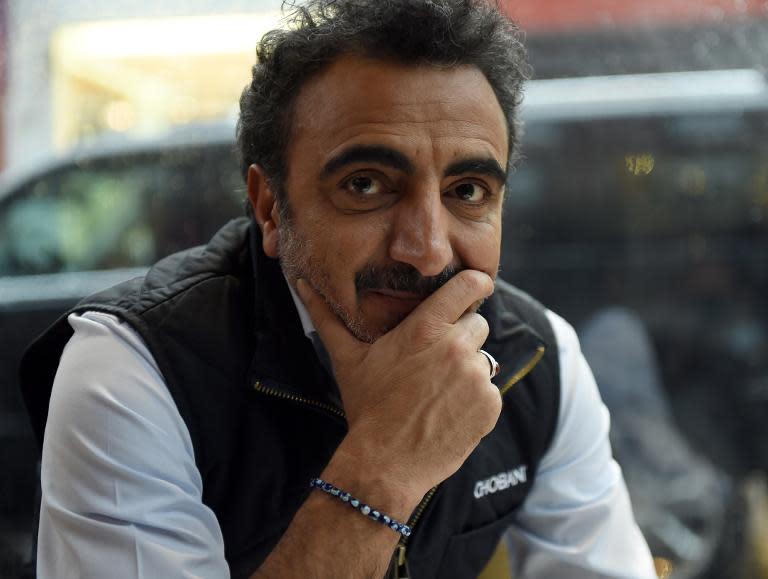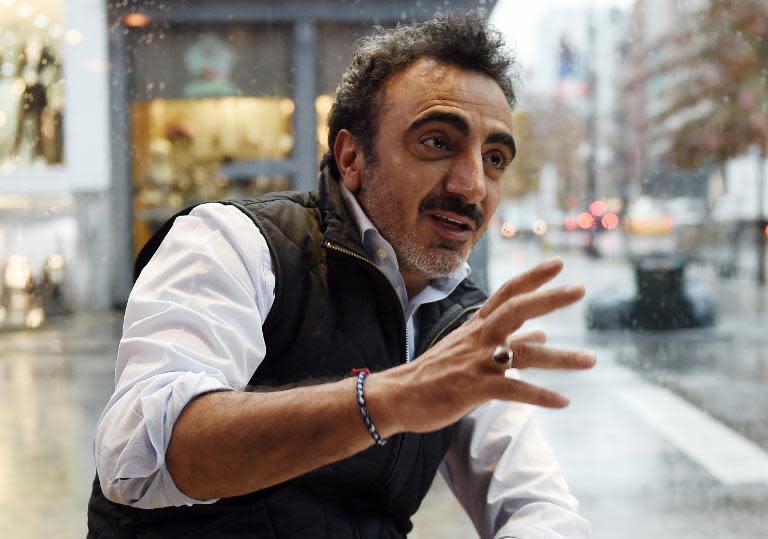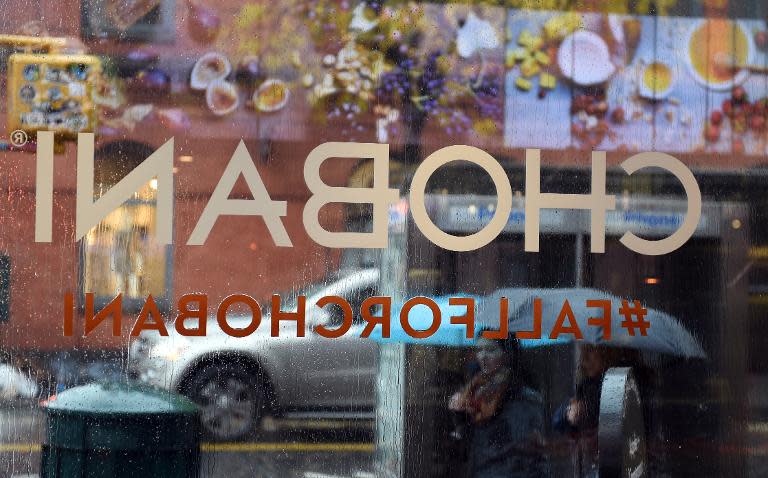For Chobani founder, American dream made of Greek yogurt
It only took Turkish immigrant Hamdi Ulukaya's yogurt seven years to sweep American grocery isles, where Chobani now competes with some of the biggest brands like Danone and Yoplait. "I love winning, I hate failure," said the 42-year-old, whose story epitomizes the American dream. When Ulukaya arrived in the United States, he had $3,000 in his pocket. Today, he's at the helm of the trendy Greek yogurt industry. Creamy, rich in protein and low in fat, "Greek yogurt" made from cow's milk is increasingly prized by health-conscious consumers, and it has benefited from the growing popularity of the Mediterranean diet in the Western world. Ulukaya, who was born into a nomadic family in the town of Ilic sometime in late October 1972 and landed in New York in 1994 to study English, sensed an opportunity. Like many immigrants, he was homesick for his country, which he left for political reasons. But he took solace in a student job at a farm in a yogurt-producing region of New York state, and the rest, of course, was history. The blossoming entrepreneur signed up for a business program at the University of Albany in New York state. - Self-made man - During a visit to the United States, his father complained about the quality of feta -- a traditional soft, Greek cheese -- and suggested his son make his own. Ulukaya founded Euphrates, a feta company that supplied local restaurants and retailers. Then in 2004, he came across an advertisement for a dairy specializing in fresh products for $700,000. Thanks to $1 million provided in large part by a small-business loan program, Ulukaya became the owner in August 2005. And after 18 months of testing, his recipe -- which he packaged in larger containers than competitors -- was ready. "It was all about the package. It will catch your eye," he said, seated at a table in Manhattan's trendy SoHo neighborhood. But, he emphasized, it's the yogurt that "will close the deal." In October 2007 Chobani -- named after the Turkish word for shepherd -- was officially born. It contained no fat, twice the protein of its peers and no artificial flavors. At the time, Danone and Yoplait accounted for 71 percent of the American yogurt market, according to AllianceBernstein. Greek yogurt accounted for only two percent. In 2009, things really took off when the ShopRite grocery chain began selling Chobani. Other large retailers such as Trader Joe's, Costco and Whole Foods jumped on board -- and sales followed. Whole Foods stopped selling Chobani in 2013, saying it wanted to sell more niche yogurts. Last year, Chobani sales exceeded $1 billion, and they are estimated to come in at around $1.5 billion this year. Even a mold outbreak that caused a recall of certain products with "best by" dates between September and October 2013 seems to have left the company relatively unscathed. Meanwhile the yogurt market has been totally recast: Greek yogurt now accounts for 40 percent of the $8 billion US yogurt industry. And Chobani, which employs 2,000 people, boasts 40 percent of that market share. - The future of Chobani - With his medium build and sporty look, Ulukaya, who dresses in casual attire, lives with his two German Shepherds in the town of New Berlin, New York. He seems unfazed by his newfound wealth and is not one to flock to posh social scenes. He calls himself single rather than divorced. His ex-wife, who is suing him, is asking for $1 billion, which she says accounts for almost a third of the company that she claims she helped finance. In the United States, average yogurt consumption lies at 14 pounds (6.36 kilograms) per person per year compared with 60 pounds in Germany and France, according to the US Department of Agriculture. Ulukaya would like to encourage yogurt consumption for other US meals besides breakfast. He envisions yogurt with oats, a sour cream rival, and a muesli-infused product. He invested $450 million in a plant in Twin Falls, Idaho, considered to be the biggest production facility for fresh products in the world. Medium-term plans could see Chobani traded on the stock market and making strategic partnerships. This year Ulukaya received a $750 million investment from TPG Capital, which gives the firm a less than 20 percent equity stake if performance targets are met. The transaction sets the company's value at roughly $4 billion. Despite some trial runs in Asia and Europe, Ulukaya shelved international expansion plans and will soon open cafes where Chobani products will be sold. "I am focused on the American market. Yogurt is underdeveloped in America," he said.





